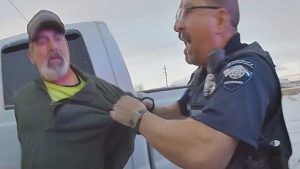SCENIC HIGHWAY OF LEGENDS — This is the story, told in living oral history, of the mining camps that once existed and thrived on the Purgatoire River above Trinidad, the towns of Jerriville, Saint Thomas, Sopris, Sopris Plaza, Piedmont, and Viola. Between 1963 and 1972, six hamlets along the upper Purgatoire River were bought by the Army Corps of Engineers. Structures were disassembled and moved or demolished. Trinidad and the areas downriver had experienced frequent and, at times, savage flooding since people first settled in the Purgatoire River Valley. A dam was needed. From 1963, when negotiations with the Army Corps of Engineers began, until 1972, when the final holdouts conceded, a slow and steady exodus of 900 inhabitants occurred. In 1977 the dam was finished, and the reservoir began filling up. By the early 1980s, all traces of Jerriville, Saint Thomas, Sopris, Sopris Plaza, Piedmont, and Viola were gone beneath the waters. People who grew up in what is now the bottom of Trinidad Reservoir still remember. “I was born in Saint Thomas, at home, by Doctor Carmichael,” says former Trinidad State Junior College psychology professor, Doc Leonetti. “We lived near the river, behind Saint Thomas Catholic Church.” Coal was king. “My father worked the Morley Mine, then Valdez, until it closed in 1965. My mother cleaned Trinidad’s hotels, anything for extra money.” There were two gas stations and several bars and grocery stores. Most families had a garden and raised chickens, sometimes cows. Doc remembers his family’s rabbits. “I took care of them. I couldn’t watch when my father killed them.” Doc said it was mostly good times growing up in Sopris. “We weren’t well off, but we always had food.” Times were tough. “The companies worked the miners six months, stockpiled tons of coal then laid everybody off. Money’d run out, we’d have credit at the store for four months, the mines hired again, and we’d pay off the credit. You couldn’t get ahead.” “It was a struggle. We ate a lot of venison, sometimes poached, you know, killed out of season.” Doc laughs. “I don’t know if people’ll want to know this. We had two pair of Levis and two pair of underwear. You’d wear them for a week then they’d get laundered. We had a big silver tub for baths. I was the oldest, so I bathed first. Everybody else used the water after me.” Returning from the Army in 1961, he spent $1,500 of his $1,800 G.I. Bill on something priceless. “I bought my parents an indoor bathroom.” Back from the Army, Doc learned the trumpet. “I played at El Rancho on Santa Fe Trail, with Freddie Baca and the Serenaders. My big solo was Cherry Pink and Apple Blossom White.” Later in life, he gave his trumpet to a student who couldn’t afford one. By 1963 the mines were closing. Doc’s parents were determined he go to college. His father said, “Don’t ever work in a coal mine.” Doc didn’t want to do back-breaking, dangerous work. “I had a job one summer, in my early twenties, doing construction. The foreman made everybody work every second. It took everything out of me. That let me know I wanted to become something other than a miner.” He attended Trinidad State Junior College then Adams State, became a teacher, guidance counselor, and La Veta school principal then received a Doctorate of Psychology from New Mexico State and taught psychology at Trinidad State for 36 years. “My parents didn’t talk about their childhoods. My father was from Rome and my mother came from Spain to settle in Chama, New Mexico. My mother remembered working in the fields near La Junta. The one story my father told was when his mother remarried and his stepfather didn’t like him and sent him to an orphanage in Denver. My father didn’t like it, so, ten years old, he walked from Denver to Sopris. He was afraid to walk along the road for fear he’d get caught so he stuck to the hills. That’s my father’s story.” The towns that drowned will be continued next week.

Breaking news: Results of Walsenburg Mayor race and recall election
Gary M. Vezzani was elected Walsenburg’s mayor in Tuesday’s special mayoral election/recall vote. Preliminary results announced Tuesday night show that both Nick Vigil in Ward



